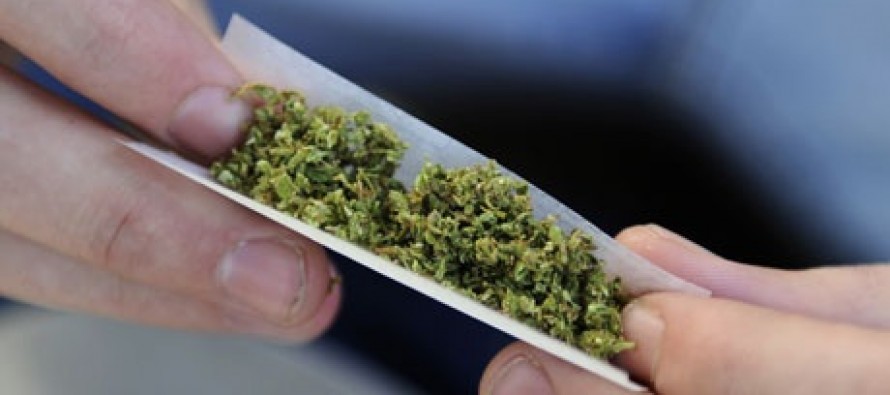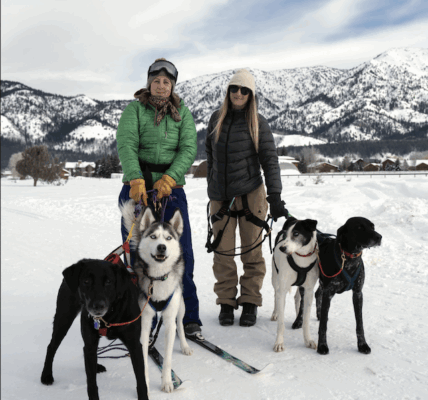Marijuana advocates aim to get initiatives on the 2024 ballot after signature confusion
• What’s next?
By Maya Shimizu Harris and Sofia Saric
Casper Star-Tribune
Via- Wyoming News Exchange
CASPER — Marijuana advocates are taking stock of their options to get two initiatives onto the 2024 ballot after a misunderstanding led them to believe the measures didn’t qualify when, in fact, it appears they did.
Last month, Compassionate Options Wyoming, Wyoming NORML and the Wyoming Libertarian Party announced in a statement that they were considering “political and legal options” after allegedly receiving mixed guidance from the Secretary of State’s Office over different administrations. The misunderstanding concerned the number of signatures needed to get the groups’ marijuana initiatives — one to decrease penalties for use and possession of cannabis, the other to legalize access to medical marijuana — on the ballot for Wyoming’s 2024 elections.
Based on some of the guidance, they concluded their marijuana initiatives didn’t qualify for a vote in next year’s elections. They believed they had thousands fewer signatures than needed, so the organizers didn’t even submit them to the Secretary of State’s Office before their March deadline, the organizers’ spokesperson Apollo Pazell said.
But it appears that they actually did have enough signatures.
These revelations mark what seems to be a significant milestone for advocates of legalizing marijuana in Wyoming.
One of the organizers, Wyoming NORML, tried to get a medical marijuana measure on the 2016 ballot. But according to Wyoming NORML Executive Director Bennett Sondeno, the group was only able to get about 13,000 signatures — far fewer than the requirement.
“It was pretty bleak,” he said.
This time around, Wyoming NORML had help from the Wyoming Libertarian Party and Compassionate Options Wyoming, as well as paid professionals, to collect signatures, Sondeno said. They far surpassed the number of signatures they had collected during their previous attempt.
To get the initiatives on the 2024 ballot at this point, the organizers would have to recollect signatures and submit them to the Secretary of State’s Office before the upcoming legislative session, according to guidance that an employee with the office emailed to Sondeno last month.
Sondeno said recollecting the required signatures before the session is “unrealistic” given the impending winter and short timeframe.
What’s more, he estimated it would cost roughly $350,000 to collect the signatures — money they simply don’t have at the moment.
The groups intend to see if the deadline to submit the signatures and validate the measure for 2024 could be extended beyond the session, Sondeno and Pazell said.
The situation, Pazell said, also points to questions about how the initiative process could be clearer to prevent something like this from happening again.
Organizers’ confusion didn’t extend just to the number of required signatures, but also to deadlines and other parts of the process.
“It was basically the entire process that was really convoluted and confused,” Pazell said. “I think this will be the first time that I’m saying this, but I think it’s something that legislators should look at.”
It’s unclear if a situation like this has happened before in Wyoming. There aren’t many examples of serious ballot initiatives to compare with, Pazell noted; Wyoming hasn’t successfully passed a ballot initiative since 1991.
Wyoming requires organizers to gather the number of signatures equal to 15% of votes cast in the last general election to get a measure on the ballot. That requirement is the highest in the country, according to Ballotpedia.
Organizers also have to reach that 15% threshold in two thirds of the state’s counties.
The petition has to be signed on paper, in person.
Once the sponsors get their petition form from the state, they have 18 months to gather the required number of signatures. They have to submit their petition with the signatures before the start of the legislative session in the year that they aim to have their initiative on the ballot. The groups gathered roughly 36,000 signatures for both initiatives before their deadline in March, according to Pazell.
They originally announced a higher number of signatures for each measure but had to throw some out for a variety of reasons — there were some repeat signatures and some of the signees weren’t registered Wyoming voters, for example.
When the organizers received their petition from the Secretary of State’s Office in September 2021, when former Secretary Edward Buchanan was in office, it was impossible to know what the signature requirement would be based on 2022 voter turnout; the elections hadn’t occurred yet.
The signature requirement based on 2020 voter turnout was 41,776 signatures. Their measures didn’t reach the 15% threshold for two-thirds of Wyoming’s counties based on that requirement.
But the Secretary of State’s Office now shows on its website that, in fact, only 29,730 signatures — based on 2022 voter turnout — are required to get an initiative on the 2024 ballot.
Under this requirement, the measures would have qualified for Wyoming’s 2024 ballot, Pazell said.
“I think there needs to be clarity in the law,” Pazell said.
He suggested the number of required signatures be based on voter turnout of the most recent general election at the time that organizers receive their petition for the Secretary of State’s Office rather than at the time they must submit those signatures to the office.
Ironically, such a provision would still have hurt the organizers’ initiatives since they didn’t meet the required threshold based on 2020 voter turnout.
But having that clarity — not having to guess at how many signatures are needed — would give organizers a framework to understand how much money, time and volunteers they need, Pazell said.
“I think that it’s important that the law be very clear so that people who want to exercise this right have the ability to do so accurately.” Pazell said.
Compassionate Options Wyoming, Wyoming NORML and the Wyoming Libertarian Party are also considering challenging the distribution requirement — the requirement to reach the 15% threshold in two-thirds of Wyoming’s counties — in federal court.
Distribution requirements have been found unconstitutional by courts, including the U.S. Supreme Court, on several occasions, according to Ballotpedia.
The requirement, Pazell said, “violates ‘one man, one vote’” — a rule under the Equal Protection clause of the U.S. Constitution that requires one person’s voting power to be about the same as another’s within the same state. The rule relies on a series of U.S. Supreme Court cases to define the meaning of that equality.
Pazell said organizers have tried to pursue a legislative remedy to change this requirement, but there hasn’t been much appetite to do so.
The groups, he said, hope to take the issue to court around the end of October or beginning of November if they aren’t able to initiate a legislative remedy before then.
Though the misunderstandings occurred over three different administrations in the Secretary of State’s Office, including those of Buchanan and interim Secretary Karl Allred, the organizers’ statement aimed criticism specifically at Secretary Chuck Gray.
In the statement, Sondeno complained Gray and his team “should have provided the same deference and professionalism to the cannabis petition” as they had to a recently-certified petition related to property taxes.
“Why did they not undertake a ‘comprehensive review of the initiative process’ while there was a pending initiative on the table? Their behavior deprived Wyomingites of their rights,” Sondeno said in the statement.
The cannabis petition organizers also claim that they last communicated with the Secretary of State’s Office on Feb. 4, and that the number of required signatures had not been updated on the office’s website at that time.
But according to internal emails Gray shared with the Star-Tribune, the website was updated to reflect signature requirements based on 2022 voter turnout on Dec. 6 — before Gray took office. At the time, former Uinta County GOP State Committeeman Allred was serving as the interim secretary of state. (Gray took office in January.)
Gray also disputed the date when the organizers last had a conversation with his office.
In response to the organizers’ statement, Gray said in an email to the Star-Tribune that its claims “are lies and attempts to make up inaccurate excuses for the fact that they did not complete the statutory initiative process.”
Gray also said Pazell “worked as a paid operative” for Sen. Tara Nethercott, who ran against him in the 2022 Republican primaries for the secretary of state post.
Pazell is the managing principal consultant of Oquirrh Mountain Strategies, which Nethercott’s candidate committee paid $4,000 for advertising and miscellaneous expenses last year, according to records with the Secretary of State’s Office. Pazell clarified multiple times that the organizers didn’t see the situation surrounding the marijuana initiatives “as a nefarious thing.”
“I understand the [current] Secretary of State has responded with a little bit of political accusations,” Pazell said. “We just want to be clear we don’t think this was malicious.”
Pazell added in a follow-up call with the Star-Tribune that the organizers “really truly viewed this as an error.”
“We view it as a process story, not a political story.”
Despite the setback, the organizers said in the statement that they’re “encouraged” to know their petition seems to have successfully collected the required number of signatures and would have been on the ballot for the 2024 elections had it not been for this misunderstanding.
“Either way, this fight is not over,” former lawmaker and Wyoming Libertarian Party member Marshall Burt said in the statement. “Patients, veterans, and Wyoming families succeeded at collecting the signatures. This measure will be law no matter how hard they try to refuse our rights.”
Burt, who lost reelection last year to Rep. Cody Wylie, R-Rock Springs, didn’t respond to the Star-Tribune’s request for comment.
Although these initiatives wouldn’t have much of a financial impact on the state if they passed, there would be many benefits for Wyomingites, Pazell said. It would allow people “access to this medicine,” he said.
“The most important thing is what we hear from veterans, MS patients, cancer patients, Alzheimer’s patients, dementia patients, chronic pain patients…” Pazell said. “The number one group we hear from are veterans, who tell us this would assist with their PTSD.”
The Wyoming Medical Society, which previously opposed legalizing medical marijuana because it would subvert the U.S. Food and Drug Administration process for developing and approving medications, did not respond to a request for comment.
The decriminalization of marijuana, he added, would provide a “level of forgiveness.”
“The excessive amount of punishment that is falling on people for the private decision to consume a plant in their private home without causing harm to others… can destroy people’s lives permanently,” Pazell said.
In Wyoming, law enforcement isn’t seeing the evidence of harsh sentences for those convicted of simple possession of marijuana, said Allen Thompson, the executive director of the Wyoming Association of Sheriffs and Chiefs of Police.
“I’m just not seeing how this is ruining people’s lives,” Thompson said.
He said that the evidence shows marijuana use “does harm the individual” and “long-term sobriety” has more benefits. He referenced a recent Columbia University study, which found that teens who use cannabis recreationally are two to four times more likely to develop psychiatric disorders, such as becoming suicidal or having depression, compared to those who don’t use marijuana at all.
“Rather than what we are saying, or other groups are saying, research the data and come to your own fact-based conclusion,” Thompson said.
At the same time, there have been multiple public and private polls done that show Wyomingites support medical marijuana and decriminalization at some level, Pazell said.
One 2020 poll from the University of Wyoming shows more than half of residents support legalizing cannabis for recreational use, and 85% are in favor of legalizing medical marijuana.
Anecdotally, “a lot of people were surprised to know” that Republicans were heavily supportive of it, and they accounted for about 80% of the signatures, Pazell said.
“Of course, some of that has to do with the fact Wyoming is overwhelmingly Republican,” he said. “But it still shows there isn’t even a partisan divide. It transcends politics as well. It’s just an appetite for this change.”





